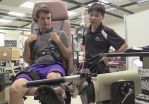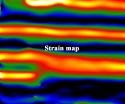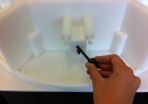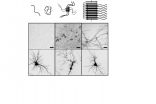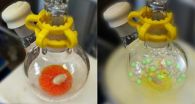(Press-News.org) Here's another reason why it's a good idea to hit the gym: it can improve memory. A new Georgia Institute of Technology study shows that an intense workout of as little as 20 minutes can enhance episodic memory, also known as long-term memory for previous events, by about 10 percent in healthy young adults (see a video demo).
The Georgia Tech research isn't the first to find that exercise can improve memory. But the study, which was just published in the journal Acta Psychologica, took a few new approaches. While many existing studies have demonstrated that months of aerobic exercises such as running can improve memory, the current study had participants lift weights just once two days before testing them. The Georgia Tech researchers also had participants study events just before the exercise rather than after workout. They did this because of extensive animal research suggesting that the period after learning (or consolidation) is when the arousal or stress caused by exercise is most likely to benefit memory.
The study began with everyone looking at a series of 90 photos on a computer screen. The images were evenly split between positive (i.e. kids on a waterslide), negative (mutilated bodies) and neutral (clocks) pictures. Participants weren't asked to try and remember the photos. Everyone then sat at a leg extension resistance exercise machine. Half of them extended and contracted each leg at their personal maximum effort 50 times. The control group simply sat in the chair and allowed the machine and the experimenter to move their legs. Throughout the process, each participant's blood pressure and heart rate were monitored. Every person also contributed saliva samples so the team could detect levels of neurotransmitter markers linked to stress.
The participants returned to the lab 48 hours later and saw a series of 180 pictures – the 90 originals were mixed in with 90 new photos. The control group recalled about 50 percent of the photos from the first session. Those who exercised remembered about 60 percent.
"Our study indicates that people don't have to dedicate large amounts of time to give their brain a boost," said Lisa Weinberg, the Georgia Tech graduate student who led the project.
Although the study used weight exercises, Weinberg notes that resistance activities such as squats or knee bends would likely produce the same results. In other words, exercises that don't require the person to be in good enough to shape to bike, run or participate in prolonged aerobic exercises.
While all participants remembered the positive and negative images better than the neutral images, this pattern was greatest in the exercise participants, who showed the highest physiological responses. The team expected that result, as existing research on memory indicates that people are more likely to remember emotional experiences especially after acute (short-term) stress.
But why does it work? Existing, non-Georgia Tech human research has linked memory enhancements to acute stress responses, usually from psychological stressors such as public speaking. Other studies have also tied specific hormonal and norepinephrine releases in rodent brains to better memory. Interestingly, the current study found that exercise participants had increased saliva measures of alpha amylase, a marker of central norepinephrine.
"Even without doing expensive fMRI scans, our results give us an idea of what areas of the brain might be supporting these exercise-induced memory benefits," said Audrey Duarte, an associate professor in the School of Psychology. "The findings are encouraging because they are consistent with rodent literature that pinpoints exactly the parts of the brain that play a role in stress-induced memory benefits caused by exercise."
The collaborative team of psychology and applied physiology faculty and students plans to expand the study in the future, now that the researchers know resistance exercise can enhance episodic memory in healthy young adults.
"We can now try to determine its applicability to other types of memories and the optimal type and amount of resistance exercise in various populations," said Minoru Shinohara, an associate professor in the School of Applied Physiology. "This includes older adults and individuals with memory impairment."
INFORMATION:
This research was supported in part by PHS Grant UL1 RR025008 from the Clinical and Translational Science Award Program, National Institutes of Health, National Center for Research Resource.
Materials – Vehicle Lightweighting ...
For about the price of leather seats, automakers can trim approximately 362 pounds off the body and chassis of a midsize passenger vehicle, according to an Oak Ridge National Laboratory study. Researchers analyzed an array of materials – carbon fiber, advanced high-strength steel, aluminum alloys, magnesium alloys – that could replace steel. While the carbon fiber composite option reduced weight by 35 percent at an additional cost of $1,317, a combination of advanced high-strength steel and alloys resulted in a 25 percent weight ...
Pity the poor lithium ion. Drawn relentlessly by its electrical charge, it surges from anode to cathode and back again, shouldering its way through an elaborate molecular obstacle course. This journey is essential to powering everything from cell phones to cordless power tools. Yet, no one really understands what goes on at the atomic scale as lithium ion batteries are used and recharged, over and over again.
Michigan Technological University researcher Reza Shahbazian-Yassar has made it his business to better map the ion's long, strange trip—and perhaps make it smoother ...
People who are unable to button up their jacket or who find it difficult to insert a key in lock suffer from a condition known as apraxia. This means that their motor skills have been impaired – as a result of a stroke, for instance. Scientists in Munich have now examined the parts of the brain that are responsible for planning and executing complex actions. They discovered that there is a specific network in the brain for using tools. Their findings have been published in the Journal of Neuroscience.
Researchers from Technische Universität München (TUM) and the Klinikum ...
Researchers have discovered a new type of brain activity that underlies the timing of voluntary actions, allowing them to forecast when a spontaneous decision will occur more than a second in advance. 'Experiments like this have been used to argue that free will is an illusion, but we think that this interpretation is mistaken,' says Zachary Mainen, a neuroscientist at the Champalimaud Centre for the Unknown, in Lisbon, Portugal, who led the research, published on Sept. 28, 2014, in the journal Nature Neuroscience.
The scientists used recordings of neurons in an area ...
The peptide —a small protein— beta-amyloid is strongly associated with Alzheimer's disease; however, researchers are still looking for unequivocal proof that this peptide is the causal agent of the onset and development of the disease. The main obstacle impeding such confirmation is that beta-amyloid is not harmful when found in isolation but only when it aggregates, that is when it self-assembles to form the so-called amyloid fibrils
"We are not dealing with a single target, beta-amyloid alone, but with multiple ones because each aggregate of peptide, which can go from ...
Current changes in the ocean around Antarctica are disturbingly close to conditions 14,000 years ago that new research shows may have led to the rapid melting of Antarctic ice and an abrupt 3-4 metre rise in global sea level.
The research published in Nature Communications found that in the past, when ocean temperatures around Antarctica became more layered - with a warm layer of water below a cold surface layer - ice sheets and glaciers melted much faster than when the cool and warm layers mixed more easily.
This defined layering of temperatures is exactly what is ...
An international team of scientists has shown that more than 80 per cent of bowel cancers could be treated with existing drugs.
The study found that medicines called 'JAK inhibitors' halted tumour growth in bowel cancers with a genetic mutation that is present in more than 80 per cent of bowel cancers. Multiple JAK inhibitors are currently used, or are in clinical trials, for diseases including rheumatoid arthritis, psoriasis, blood cancers and myeloproliferative disorders.
Bowel cancer is the second-most common cancer in Australia with nearly 17,000 people diagnosed ...
DURHAM, N.C. -- A Duke University team has found that nanoparticles called single-walled carbon nanotubes accumulate quickly in the bottom sediments of an experimental wetland setting, an action they say could indirectly damage the aquatic food chain.
The results indicate little risk to humans ingesting the particles through drinking water, say scientists at Duke's Center for the Environmental Implications of Nanotechnology (CEINT). But the researchers warn that, based on their previous research, the tendency for the nanotubes to accumulate in sediment could indirectly ...
Computer modelling of the human eye, the brain of a rat and a robot could revolutionise advances in neuroscience and new technology, says a QUT leading robotics researcher.
Dr Michael Milford from QUT's Science and Engineering Faculty says the new study uses new computer algorithms to enable robots to navigate intelligently, unrestricted by high-density buildings or tunnels.
"This is a very Frankenstein type of project," Dr Milford said.
"It's putting two halves of a thing together because we're taking the eyes of a human and linking them up with the brain of a rat.
"A ...
An international group of researchers led by Dr. Warren E. Piers (University of Calgary) and Dr. Heikki M. Tuononen (University of Jyväskylä) has been able to isolate and characterize an important chemical intermediate whose existence has, so far, only been inferred from indirect experimental evidence.
Chemical reactions rarely go from starting materials to final products in one single step, but instead they progress through a number of intermediates. In many cases the intermediates are not stable enough to be studied by conventional characterization methods, which thwarts ...
